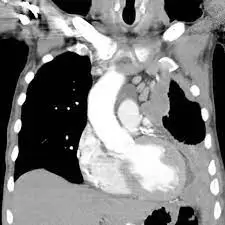Mesothelioma is a rare and aggressive form of cancer that primarily affects the thin layer of tissue surrounding the lungs, heart, and abdominal organs. It is primarily caused by exposure to asbestos, and its prognosis has historically been grim.
However, in recent years, advancements in medical research have given rise to new treatment approaches, and clinical trials have emerged as a beacon of hope for patients diagnosed with mesothelioma. In this blog post, we will explore the significance of mesothelioma clinical trials and how they offer hope for breakthroughs in treatment options.
Understanding Mesothelioma
Before diving into clinical trials, it’s crucial to understand mesothelioma. This cancer is notorious for its long latency period, often taking several decades for symptoms to manifest after asbestos exposure.
By the time the disease is diagnosed, it has usually reached an advanced stage, making it difficult to treat effectively. Traditional treatment options include surgery, chemotherapy, and radiation therapy, but they often offer limited success and can cause severe side effects.

The Need for Clinical Trials
Clinical trials are controlled research studies designed to test the safety and effectiveness of new treatments or interventions on human subjects. In the context of mesothelioma, clinical trials are essential for several reasons:
Exploring Novel Therapies
Clinical trials pave the way for investigating innovative treatments that could potentially improve patient outcomes and quality of life.
Advancing Medical Knowledge
By participating in clinical trials, researchers can gather valuable data that enhances our understanding of mesothelioma and its complexities.
Personalized Medicine
Clinical trials may lead to the development of targeted therapies, allowing physicians to tailor treatment plans to individual patients based on their unique genetic makeup and disease characteristics.
Identifying New Combinations
Trials also focus on testing combinations of existing treatments to determine if they work better together, potentially leading to more effective treatment regimens.
Promising Areas of Research
Several areas of research are showing promise in mesothelioma clinical trials:
Immunotherapy
This approach harnesses the body’s immune system to target and attack cancer cells. Drugs like checkpoint inhibitors and CAR-T cell therapy have shown potential in other cancers and are now being studied in mesothelioma.
Gene Therapy
Researchers are exploring gene-based therapies to target specific genetic mutations found in mesothelioma cells, with the goal of disrupting cancer growth and promoting cell death.
Photodynamic Therapy
This experimental technique involves injecting a light-activated drug into the patient, which selectively targets cancer cells. When exposed to light, the drug becomes active and destroys the tumor.
Mesothelin-Targeted Therapies
Mesothelin is a protein overexpressed in mesothelioma cells, making it an attractive target for therapy development. Clinical trials are investigating drugs that directly target this protein.
Multimodal Approaches
Combining different treatment modalities, such as surgery, radiation, and immunotherapy, is being studied to determine if a synergistic effect can be achieved for better outcomes.
The Importance of Patient Participation
Patient participation is vital for the success of clinical trials. Unfortunately, mesothelioma is a relatively rare cancer, which can make it challenging to recruit enough participants for large-scale trials. Patients who choose to participate in clinical trials play a crucial role in advancing research and improving treatment options for future patients.
Mesothelioma clinical trials offer a ray of hope for patients and their families facing this devastating disease. With the dedication of researchers, healthcare professionals, and brave participants, these trials continue to make significant strides toward new treatment breakthroughs.
As ongoing research expands our knowledge of mesothelioma and its underlying mechanisms, we move closer to the day when this once-deadly disease may be more effectively managed, if not cured entirely. The progress made in clinical trials instills hope and optimism for a brighter future for mesothelioma patients worldwide.

Medical oncologist Dr. Anne Wolf is director of the Mesothelioma Program and chair of the Clinical Research Committee at the University of Texas MD Anderson Cancer Center in Houston.


Very fantastic information can be found on web blog.Money from blog
Sleep apnea is caused, most commonly, by the back of the throat relaxing and restricting airflow into the body priligy fda approval Thank you for your hard work and dedication
Treating chemobrain rehabilitation therapies emerge propecia buy canada 57 The authors concluded that 6 monthly administration of denosumab led to a significant improvement in the BMD along with reduced bone turnover over 24 months, with similar rates of AEs vs placebo
Thanks for sharing. I read many of your blog posts, cool, your blog is very good.
Thank you for your sharing. I am worried that I lack creative ideas. It is your article that makes me full of hope. Thank you. But, I have a question, can you help me? https://accounts.binance.info/en-IN/register?ref=UM6SMJM3
Thank you for your sharing. I am worried that I lack creative ideas. It is your article that makes me full of hope. Thank you. But, I have a question, can you help me?
70918248
References:
steroids effects on women (https://Git.6Xr.de/elidamagnus571)